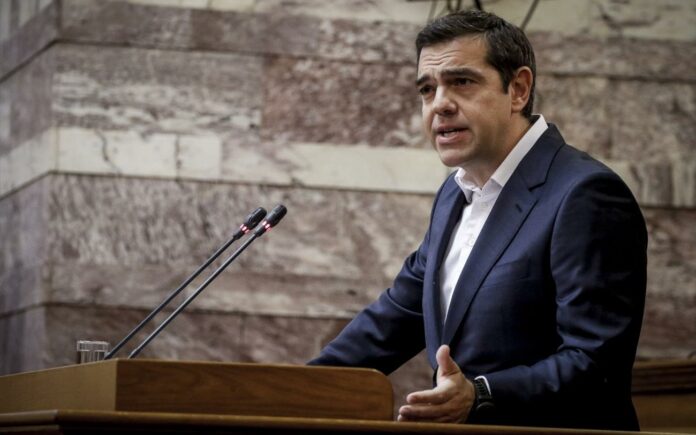High-profile proposals for constitutional revision in Greece were again unveiled by Greek Prime Minister Alexis Tsipras this week, with general elections now less than a year away and roughly two years after he last threw out the “constitution card” on the table of political deliberations.
The main highlights of Tsipras’ proposals is the concept of “religious neutrality” being included in Greece’s constitution, while foreseeing a “no confidence vote” without the loss of a government’s mandate and possible changes in the way a president of the republic is elected in the country.
Wholly missing from the leftist prime minister’s “short list” is any revision of controversial Article XVI, which essentially forbids the establishment and operation of non-profit and non-state universities in Greece. Tsipras and his radical leftist SYRIZA party are long-time ideological opponents of non-state tertiary institutions in the country, along with much of the left-of-center political spectrum and national conservatives.
Tsipras spoke before his party’s Parliamentary group on Tuesday, where he cited a proposal to elect a president of the republic via a bare majority in Parliament (150 MPs +1) or even through a popular vote if two preceding votes in Parliament fail to reach a higher majority (200 and 180 MPs).
At present, the ceremonial head of state in Greece is elected in Parliament. Nevertheless, failure to elect a president causes a snap election, something that occurred in January 2015, when much of the opposition – including Tsipras’ leftists – in Parliament declined to elect a head of state.
Tsipras, whose ruling party is trailing the main opposition party by double-digit percentage points in all mainstream opinion polls and whose own voter approval ratings are falling, also called for a revision of Article 86, which affords Cabinet members extended immunity for prosecution.
Finally, another highlight in his proposals is enshrining a more simple representational election system in the constitution.
In a first reaction, main opposition New Democracy (ND) said the revisited issue of constitutional revision by Tsipras and his leftist-rightist coalition government aims to “hide, for a few days, the government’s decay, as well as public accusations and counter-accusations of bribery by his ministers.”
ND also sharply dismissed criticism by Tsipras, speaking in parliament to his MPs, that ND leader Kyriakos Mitsotakis is opposed to revising the law on ministers’ immunity, saying the latter, as far back as 2006 and as recently as 2016, has demanded the constitutional article’s elimination.
Mitsotakis himself later referred to “lies” by Tsipras regarding his positions on Article 86.
“Mr. Tsipras today said that I do not want the law on ministers’ responsibilities to change. As usual, he’s lying,” Mitsotakis said.
The center-right party leader was one of only 10 deputies in pre-crisis 2008 that signed a petition calling for the revision of Article 86.














